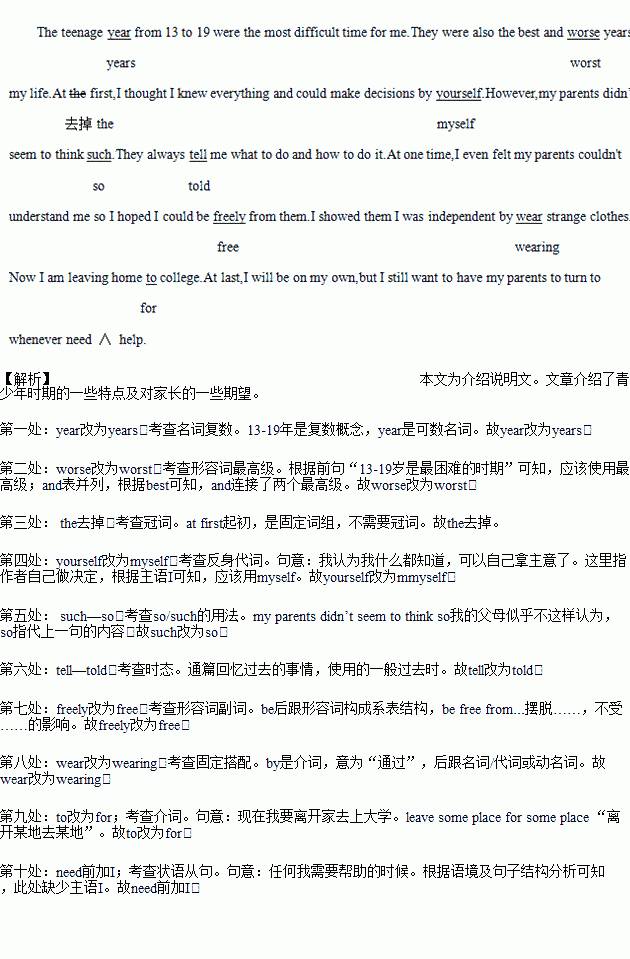题目内容
假定英语课上老师要求同桌之间交换修改作文,请你修改你同桌写的以下作文。文中共有10处语言错误。错误仅涉及一个单词的增加、删除或修改。增加:在缺词处加一个漏字符号∧,并在其下面写出该加的单词。删除:把多余的单词用\划掉。修改:在错的单词下面画一横线,并在该单词下面写出修改后的单词。
注意:1.每处错误及其修改均仅限一词;
2.只允许修改10处,多者(从第11处起)不计分。
The teenage year from 13 to 19 were the most difficult time for me. They were also the best and worse years in my life. At the first, I thought I knew everything but could make decisions by myself. Besides, my parents didn’t seem to think so. They always tell me what to do and how to do it. At one time, I even felt my parents couldn’t understand me so I hoped I could be freely from them. I showed them I was independent by wear strange clothes. Now I am leaving home for college. At last, I will be on their own, but I still want to have my parents to turn whenever I need help.
 天天向上一本好卷系列答案
天天向上一本好卷系列答案 小学生10分钟应用题系列答案
小学生10分钟应用题系列答案

 nd and is famous for its six-lane highways.
nd and is famous for its six-lane highways.